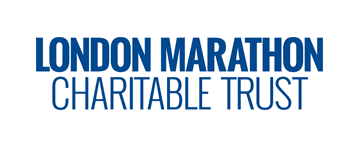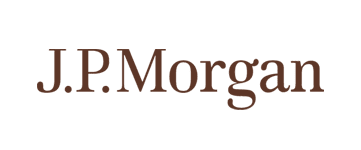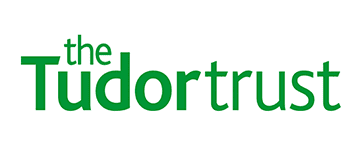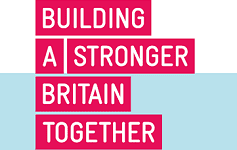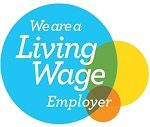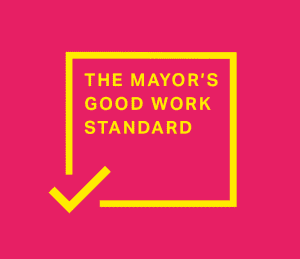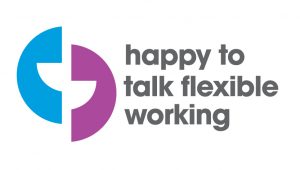Challenge London Poverty Week: Responding and recovering

By Jim Minton, Chief Executive of Toynbee Hall
Each day for the past few months, small groups of local residents have been coming to the gardens at Toynbee Hall to tend and water the small patch of vegetables growing in the flower beds.
The arrival of tomatoes, courgettes and figs has felt like something of a reawakening, and the fact that local people had been the ones making sure that the seeds could flower and bear fruit felt like a hopeful and positive sign.
And we certainly need some positive signs. Despite being one of the richest cities in the world, long before the pandemic struck we had chronic issues of inequality and deprivation. This morning, Trust for London released new data which takes a deep dive into the condition of London’s boroughs in relation to different indicators of poverty and inequality. Here in our Borough of Tower Hamlets, levels of child poverty are the highest in London, and other indicators such as income inequality and unemployment are also worryingly high.
This data illustrate the stark realities facing communities right across London: food insecurity affecting tens of thousands of families; overcrowded, expensive and unsuitable housing – today’s challenge poverty week theme – trapping huge numbers of families; loneliness and isolation, increasingly affecting young as well as older people. And insecure employment, particularly impacting those with no recourse to any other source of public funds.
All of these things have become markedly worse through the crisis. Throughout this London Challenge Poverty Week, the people we work with will be sharing their insights and aspirations, through blogs and virtual events, sharing the profound impact this period has had on them and their families. The perilous situation that many have faced – both in terms of risk of illness and the economic consequence – will have huge knock on impacts into the future.
In this context it can be a challenge to think about recovery. Many communities, particularly those with lower incomes and from a range of minority ethnic backgrounds, have been significantly and disproportionately affected. And as daily news of rising cases and further restrictions dominate the news, the idea of building back better risks being overshadowed by more focus on responding to the emergency.
We must keep people safe and supported. Toynbee Hall and many others will continue to work tirelessly to provide essential support remotely: access to advice, support with benefits, distribution of food, support for family issues and mental health, in our case through volunteer befrienders, regularly in contact with others at risk of loneliness through phone calls and conversations.
But we must also absolutely keep our focus on the future, looking what will change systems, and equip our communities to be better protected from future shocks.
I am pleased to be working alongside colleagues across London with the ambition to ensure there is a robust safety net in the capital as part of Mayor’s recovery strategy. The insights of the people we have worked with over recent months has informed this agenda, shared with a wide coalition of stakeholders across London do want to make change happen.
Our challenge must be to try and stay focused on that future, on the systemic changes that are needed; shaping a broader agenda of proactive opportunities around skill, housing, jobs, careers and things that will make a long term, material difference.
A small but important example can be seen in our Champions partnership with city law firm Cleary Gottleb Steen & Hamilton, which seeks to open the legal profession up to young black Londoners. This period has required all of us to take a long overdue much stronger focus on the systemic barriers of racism – which contributed to that disproportionate impact of Covid – so it is vital that all of us do what we can to make change.
And over the next few weeks we will be inducting a new cohort of trainee debt advisers giving our Debt Free London partnership even greater capacity to offer high quality support and advice to many more Londoners, including those forced into debt by the shocks of the pandemic. At the same time we want to ensure that debt advice always helps people move forward, rather than sometimes inadvertently trapping them in long-term repayment plans. To meet need in the long term, we must design advice services with great outcomes for clients at their heart.
So, in the spirit of the efforts of our local gardeners, there are green shoots emerging.
Ideas like the ‘Fifteen Minute City’ – where everything you need is in walking distance of your home – are taking hold. Today Centre for London announced its manifesto for London recovery with a thoughtful wide ranging set of ideas including a strong and welcome call for even more ‘greening’ of our city. We must ensure that ideas for the future city reduce rather than ‘bake-in’ further exclusion. ‘Fifteen minutes’ needs as well as bicycles and bakeries to also encompass youth provision, safe spaces for community activities, support for mental health, language learning and tech skills.
Communities are telling us what they need: they want food security; not a permanent extension of ‘emergency’ deliveries, but reliable, affordable sources of healthy food locally. Support with language skills – so they can navigate systems for accessing support. Enhanced rights for renters and greater long term support for those in private housing. To address digital exclusion, investment in community infrastructure to deliver support and coaching to help those missing out to get online and access services, not another app or cheap tablet. And fundamentally people want their voices to be heard and to have more power over their own lives.
Providing face to face opportunities for connection is hard right now. In this context our efforts to keep our own spaces physically open, to host socially distanced conversation bubbles and gentle exercise classes, has been very important. And as significant have been our efforts to keep fostering community conversations and keep dialogue open with the council, housing providers, the London Mayor and the wider government.
As we begin London Challenge Poverty Week, I hope we can continue to support the planters, growers, nurturers and challengers; and hear the voices from within the communities so they can shape that future so it is genuinely fairer and happier for everyone.
Take part in Challenge London Poverty Week
This week there is a range of events taking place that you can take part to add your voice to the calls for action to tackle poverty and inequality across the capital. To see what’s going on near you, or online, please visit: www.londonchallengepovertyweek.org.uk
We’re holding an event this Friday, 16th October: Pandemic Stories: Challenging Poverty in London. Hear early research findings from a group of community researchers and join us to discuss key issues around financial health, employment challenges and the role of community support during the crisis for low income and other disproportionately affected Londoners.




